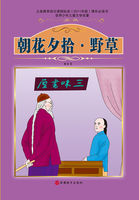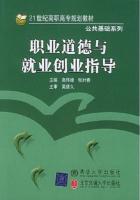And yet I'm afraid he has.' 'Don't you know, at all, how the money has gone?' asked Molly.'No! not at all.That's the sting.There are tailors' bills, and bills for book-binding and wine and pictures - that come to four or five hundred;and though this expenditure is extraordinary - inexplicable to such simple folk as we are - yet it may be only the luxury of the present day.But the money for which he will give no account, - of which, indeed, we only heard through the squire's London agents, who found out that certain disreputable attorneys were making inquiries as to the entail of the estate, - oh! Molly, worse than all - I don't know how to bring myself to tell you - as to the age and health of the squire, his dear father' - (she began to sob almost hysterically; yet she would go on talking, in spite of Molly's efforts to stop her) - 'who held him in his arms, and blessed him, even before I had kissed him; and thought always so much of him as his heir and first-born darling.How he has loved him! How I have loved him! I sometimes have thought of late that we've almost done that good Roger injustice.' 'No! I'm sure you've not: only look at the way he loves you.Why, you are his first thought: he may not speak about it, but any one may see it.And dear, dear Mrs Hamley,' said Molly, determined to say out all that was in her mind now that she had once got the word, 'don't you think that it would be better not to misjudge Mr Osborne Hamley? We don't know what he has done with the money: he is so good (is he not?) that he may have wanted it to relieve some poor person - some tradesman, for instance, pressed by creditors - some -- ' 'You forget, dear,' said Mrs Hamley, smiling a little at the girl's impetuous romance, but sighing the next instant, 'that all the other bills come from tradesmen, who complain piteously of being kept out of their money.' Molly was nonplussed for the moment; but then she said, - 'I daresay they imposed upon him.I'm sure I've heard stories of young men being made regular victims of by the shopkeepers in great towns.' 'You're a great darling, child,' said Mrs Hamley, comforted by Molly's strong partisanship, unreasonable and ignorant though it was.'And, besides,' continued Molly, 'some one must be acting wrongly in Osborne's - Mr Osborne Hamley's, I mean - I can't help saying Osborne sometimes, but, indeed, I always think of him as Mr Osborne - ' 'Never mind, Molly, what you call him; only go on talking.It seems to do me good to have the hopeful side taken.The squire has been so hurt and displeased: strange-looking men coming into the neighbourhood, too, questioning the tenants, and grumbling about the last fall of timber, as if they were calculating on the squire's death.' 'That's just what I was going to speak about.Doesn't it show that they are bad men? and would bad men scruple to impose upon him, and to tell lies in his name, and to ruin him?' 'Don't you see, you only make him out weak, instead of wicked?' 'Yes; perhaps I do.But I don't think he is weak.You know yourself, dear Mrs Hamley, how very clever he really is.Besides, I would rather he was weak than wicked.Weak people may find themselves all at once strong in heaven, when they see things quite clearly; but I don't think the wicked will turn themselves into virtuous people all at once.' 'I think I've been very weak, Molly,' said Mrs Hamley, stroking Molly's curls affectionately.'I've made such an idol of my beautiful Osborne;and he turns out to have feet of clay, not strong enough to stand firm on the ground.And that's the best view of his conduct, too!' What with his anger against his son, and his anxiety about his wife: the difficulty of raising the money immediately required, and his irritation at the scarce-concealed inquiries made by strangers as to the value of his property, the poor squire was in a sad state.He was angry and impatient with every one who came near him; and then was depressed at his own violent temper and unjust words.The old servants, who, perhaps, cheated him in many small things, were beautifully patient under his upbraidings.They could understand bursts of passion, and knew the cause of his variable moods as well as he did himself.The butler, who was accustomed to argue with his master about every fresh direction as to his work, now nudged Molly at dinner-time to make her eat of some dish which she had just been declining, and explained his conduct afterwards as follows, - 'You see, miss, me and cook had planned a dinner as would tempt master to cat; but when you say, "No, thank you," when I hand you anything, master never so much as looks at it.But if you takes a thing, and cats with a relish, why first he waits, and then he looks, and by-and-by he smells;and then he finds out as he's hungry, and falls to eating as natural as a kitten takes to mewing.That's the reason, miss, as I gave you a nudge and a wink, which no one knows better nor me was not manners.' Osborne's name was never mentioned during these tete-a- tete meals.The squire asked Molly questions about Hollingford people, but did not seem much to attend to her answers.He used also to ask her every day how she thought that his wife was; but if Molly told the truth - that every day seemed to make her weaker and weaker - he was almost savage with the girl.
He could not bear it; and he would not.Nay, once he was on the point of dismissing Mr Gibson because he insisted on a consultation with Dr Nicholls, the great physician of the county.'It's nonsense thinking her so ill as that - you know it's only the delicacy she's had for years; and if you can't do her any good in such a simple case - no pain - only weakness and nervousness - it is a simple case, eh?















